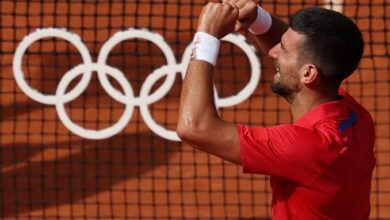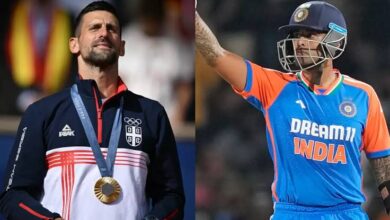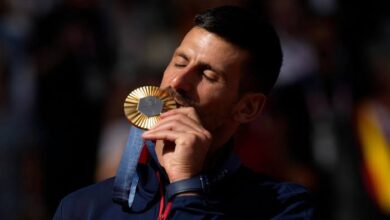India’s Tennis Campaign Ends Abruptly at Paris Olympics
Sumit Nagal and Doubles Team Exit After Opening Round Losses

India’s tennis aspirations at the Paris Olympics were short-lived, concluding within a single day as both Sumit Nagal and the men’s doubles team of Rohan Bopanna and N. Sriram Balaji were eliminated in their respective opening matches.
Sumit Nagal Falls to French Opponent
Sumit Nagal, making his second Olympic appearance, faced off against France’s Corentin Moutet. Despite a strong baseline game, Nagal succumbed to Moutet in a competitive three-set match, 2-6, 6-4, 5-7. The match, held at Roland Garros’ Court 7, saw Nagal falter after a promising start. Although he led 2-0 in the deciding set, he could not maintain his advantage, allowing Moutet to reclaim control and secure the victory.
Nagal’s previous Olympic outing in Tokyo ended in the second round, and he faced similar challenges this time. Despite an early break in the decider, Moutet’s strategic play, including underarm serves and well-placed drop shots, proved effective against Nagal’s baseline power.
Doubles Pair Bopanna and Balaji Knocked Out
Later in the day, Rohan Bopanna and N. Sriram Balaji were defeated by the French duo Edouard Roger-Vasselin and Gael Monfils with a score of 5-7, 2-6. The match saw the Indian pair struggling against the dynamic French team, which had the advantage of home support and Monfils’ powerful play. Despite a valiant effort, Bopanna and Balaji could not overcome their opponents’ aggressive baseline strategy and missed opportunities to capitalize on crucial points.
Impact and Future Prospects
This early exit marks a disappointing moment for Indian tennis, with the country’s last Olympic medal in tennis being Leander Paes’ bronze in the 1996 Atlanta Games. For Bopanna, it could be a final appearance in a major multi-sport event as he approaches retirement from the Davis Cup.
As the Paris Olympics continue, the absence of Indian tennis from further rounds highlights the challenges faced in international competition. However, the experience gained by players like Nagal and Bopanna can serve as a foundation for future improvement and preparation.
Conclusion
India’s brief tennis campaign at the Paris Olympics underscores the intense competition and the need for strategic adjustments. As players return to their training, the focus will shift to building on their experiences and preparing for future challenges, aiming for a stronger performance in the upcoming international events.



